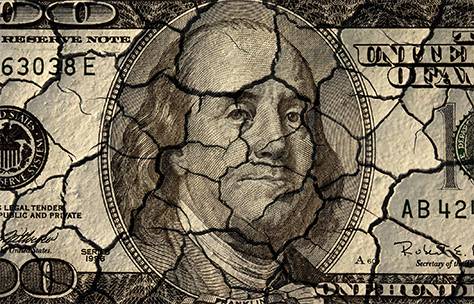The US dollar tumbled today against most major rivals and relinquished last week’s gains amid concerns about US President Donald Trump’s tariff policies and their impact on growth and inflation.
The dollar was hurt after Trump announced plans to double the steel and aluminum tariffs to 50%, while China and the US traded criticism and accusations of violating the recent trade agreement in Geneva.
US Treasury Secretary Scott Bessent said both President Trump and his Chinese counterpart will talk on the phone soon, and assured the markets that the issues will be solved.
High Selling Pressures
The dollar tumbled 0.8% to 142.85 yen, almost erasing all of its gains on the yen last week, while the euro rose 0.8% to $1.14355, the highest since late April, as analysts now await the European Central Bank’s policy meeting and decisions this week.
The dollar extended its losses after data showed US manufacturing shrank for the third straight month in May, while European manufacturing is showing signs of stabilization.
Dollar’s Losses
The dollar index fell 0.6% against a basket of major rivals to 98.75, approaching a three-year nadir at 97.923.
The US dollar suffered weeks of volatile trading due to Trump’s changing tariff policies, amid persistent concerns about a US recession.
It fell 3% in the week after the Liberation Day’s tariffs in April, andfell 1.9% in the week after Trump’s threats to impose 50% tariffs on EU goods.
The dollar had a transient recovery last week as the US resumed trade talks with the EU and a US trade court suspended Trump’s tariffs, but a day later, the appeals court stayed the tariffs.
Goldman Sachs expects that 10% tariffs will continue to apply on major US trade partners, in turn bolstering the “sell America” narrative as investors flee US assets.
And this week, the Senate will discuss Trump’s tax reform bill, which could add $3.8 trillion to the US government debt pile in the next 10 years.
A particular sticking point in the bill in section 899, giving the US freedom to impose taxes on corporations and investors from countries that impose “unfair taxes” on US goods and companies.
Such a bill would massively hurt global investor sentiment and interest in the US market.


